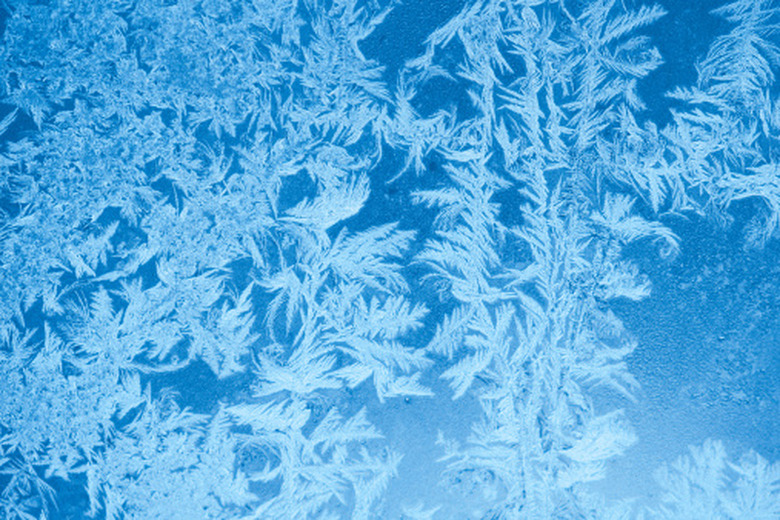How To Make Salt Crystallize
Salt is extremely soluble in water. Sea or ocean water is one of the major sources of the world supply of salt. From ancient times, salt has been a prized commodity and was valued enough to become a currency in many locations throughout the world. The recovery of salt from seawater occurs by the evaporation of water and until the salt begins to crystallize. Crystallization occurs when the concentration of a chemical exceeds the solubility in the particular solvent. Initiation of crystal formation occurs by the addition of a seed crystal or the presence of an irregularity in the surface of the container.
Step 1
Form a salt solution by adding salt to water. Add salt to a beaker of water with stirring until no more salt dissolves. This forms a saturated salt solution. You have reached the maximum solubility point for salt in water under the temperature and pressure condition of your location.
Step 2
Heat the salt solution on a hot plate to raise the temperature slightly. At the new temperature, the solubility characteristics of salt have changed.
Step 3
Add salt to the hot solution until no more salt will dissolve.
Step 4
Turn off the hot plate and allow the solution to cool. As the temperature drops, the solution shifts from saturation to supersaturation. In a supersaturated state, crystallization can occur at any moment.
Step 5
Initiate crystallization by using a stirring rod to scratch the side of the beaker below the surface of the salt solution. The scratch will provide a location for crystals to start forming. An alternative to scratching the beaker is to add one or two salt crystals to the solution from the reagent bottle. The crystal will form the nucleus for crystallization. As the temperature drops the extra salt that you added to the hot solution will fall out of solution because it exceeds salt's solubility at the lower temperature.
Things Needed
- Salt
- Water
- Hot plate
- Beaker
Cite This Article
MLA
Lancaster, Sean. "How To Make Salt Crystallize" sciencing.com, https://www.sciencing.com/make-salt-crystallize-8686035/. 24 April 2017.
APA
Lancaster, Sean. (2017, April 24). How To Make Salt Crystallize. sciencing.com. Retrieved from https://www.sciencing.com/make-salt-crystallize-8686035/
Chicago
Lancaster, Sean. How To Make Salt Crystallize last modified March 24, 2022. https://www.sciencing.com/make-salt-crystallize-8686035/
